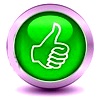A wiki is a website designed for collaborative editing, letting many people create, update, and organize content directly in a web browser.
They emphasize simplicity and openness — pages can be created or modified without special technical skills, and most maintain an edit history so revisions can be reviewed or reverted.
Main features
- **Collaborative editing:** Several contributors can edit pages, sometimes at the same time.
- **Edit history:** Every modification is recorded with a timestamp and the editor’s identity or IP address.
- **Interlinking:** Creating links among pages is straightforward, which helps interconnect content.
- **Lightweight markup:** Pages are typically formatted with lightweight markup like WikiText or Markdown.
- **Permission settings:** Wikis may allow public editing or restrict changes to registered or authorized users.
- **Discussion pages:** Separate talk pages allow contributors to discuss edits and structure.
Common uses
- Crowd-sourced knowledge resources (e.g., Wikipedia)
- Project docs and corporate knowledge repositories
- Group writing and collaborative note-taking
- Educational and classroom projects
Benefits
- **Fast collaboration:** Contributors can rapidly create and improve content.
- **Openness:** Edit histories and talk pages reveal how content decisions were made.
- **Expandable:** They scale organically as users add more pages and topics.
Limitations
- **Vandalism and false information:** Open contribution can result in deliberate or accidental misinformation.
- **Inconsistent quality:** Articles can differ greatly in depth, tone, and reliability.
- **Organizational issues:** Without clear governance, content may become fragmented or disputed.
Illustration
- **Wikipedia** — the largest example, maintained by the Wikimedia Foundation and contributed to by volunteers worldwide.






















